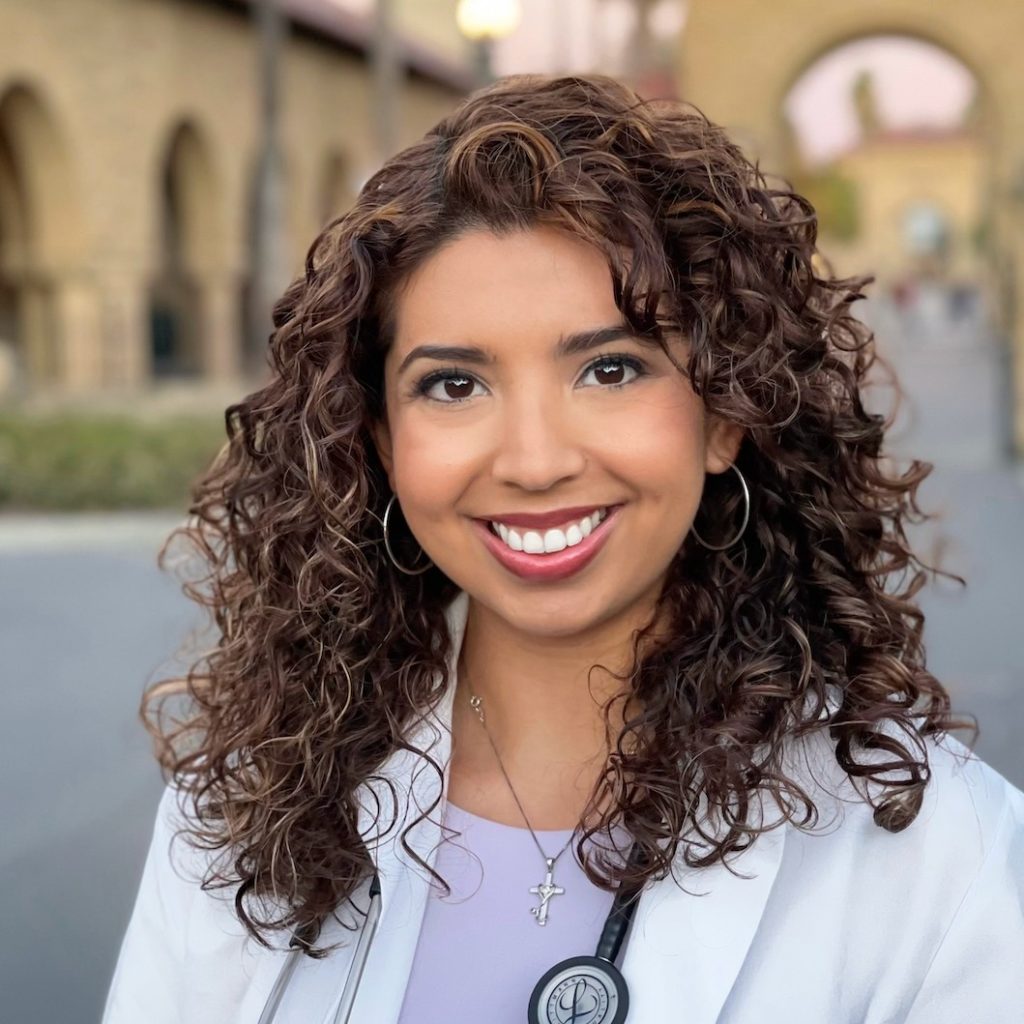Published: 03/28/2022

The Stanford Center for Innovation in Global Health has selected its 2022-23 Global Health Media Fellow: Janelle Chavez, a third-year Stanford medical student with extensive global health experience and a passion for increasing health literacy and access to quality medical care in underserved populations.
“I feel so blessed to receive this fellowship,” said Chavez. “I am excited to blend my passions for medicine and communication to disseminate information that is critical for individual and public health.”
Chavez is the 12th fellow to be selected for this unique program designed to create a generation of physician-storytellers who can shine a light on under-reported global health challenges and build health literacy among populations not traditionally served by mainstream media. The fellowship enables a medical school student each year to master the principles of storytelling and multimedia and medical journalism through journalism school training and an intensive internship with Sanjay Gupta at CNN, as well as a capstone global health project. Alumni, most of them doctors, now convey medical insights and expertise through compelling television interviews, engaging blogs, and powerful op-eds. The fellowship’s impact was recently featured in this Academic Medicine publication as well as this commentary in Global Health Now .
Chavez has a deep passion for health research, advocacy, and addressing the kinds of health disparities she witnessed as a child growing up in a small town in the Rio Grande Valley of Texas, which, despite very high rates of diabetes, obesity, and cancer, holds one of the lowest physician-to-patient ratios in the nation.
“I hope to harness the power of media to promote health equity by highlighting issues surrounding the most vulnerable populations.”
—Janelle Chavez
In her studies, Chavez has worked with local doctors in the Dominican Republic and Peru, assisted with MD Anderson Cancer Center telementoring efforts in the Rio Grande Valley, collaborated with Stanford surgeons to evaluate access to hospitals on the US-Mexico border, and volunteered for the Families at the Border Initiative providing training and resources to health care professionals caring for refugees.
Chavez is committed to using the media fellowship to shine a light on such disparities, as well as build health literacy in underserved populations.
“I witnessed the power of mainstream media and its influence on health choices while watching Univisión with my grandmother,” she wrote in her application, noting that her grandmother modified her diet based on information presented by physicians on TV. “I saw how health communication could serve as a critical tool to combat preventable illnesses, such as the cervical cancer that was very common in the Rio Grande Valley.”
At Stanford, Chavez works for the Center for Health Education, creating informative and engaging videos about various women’s health issues.
Chavez also recognizes and plans to channel journalism’s power to catalyze widespread change. To this end, she recently helped organize a training for journalists regarding mistrust and misinformation in the Latino community during the COVID-19 pandemic.
“I hope to harness the power of media to promote health equity by highlighting issues surrounding the most vulnerable populations,” she said.